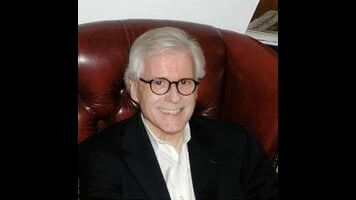
Amid a presidential campaign of stupefying banality, where candidates compete to say the emptiest sentiment in the least insightful way possible, what a pleasure it is to enter the rough-and-tumble politics of Thomas Mallon’s historical novels. The elites of ’80s government and media didn’t need soundbites: They had passions.
Finale is the follow-up to Mallon’s PEN-nominated Watergate, which looked at the unraveling of the Nixon presidency with unrelenting detail and no small amount of sympathy. Here, he skips over Gerald Ford’s elevation-by-resignation and Jimmy Carter’s democratic interlude to examine two pivotal periods of the Reagan administration: the Reykjavík Summit, where U.S.-Soviet arms-reduction negotiations collapsed, and Iran-Contra, with steady revelations that cause Nancy Reagan to fret about jail cells.
Admittedly, Finale has less pop than its predecessor. The Watergate scandal built to a singular moment, giving Watergate a narrative momentum Finale lacks. It isn’t until the book is nearly over that a thought from Christopher Hitchens—a real-life friend of Mallon’s whose warts-and-all depiction feels true and affectionate—begins to apply to the book overall: “It was, he had always believed, one world: perhaps this would turn out to be all one story.”
This broader approach is by design. Nixon’s disgrace was so total that his story came to an essential end, but he was unique in that way. Nothing ever really gets settled in history, and that’s especially true for a president as consequential as Reagan. As the devastating epilogue makes clear, Finale is building to a haze, not a resolution. The ravages of AIDS and signs of Alzheimer’s are literal parts of the story, but they also function as metaphor, as the president’s inner circle decays and loses its focus amid scandal.
The tone is elegiac, but the details are biting and often hilarious, especially if you’re familiar with this era. Because no one has reached these levels of society by accident, nearly all the characters are players, and at the pinnacle of power they only have worthy opponents to joust against. Mallon’s murderers’ row of mostly historical figures make for terrific—if not wholly respectable—company. Hitch, of course, was legendarily quick-witted, but its Finale’s women who really bring the heat. Many feel like tributes to the gloriously acid-tongued stars of Reagan’s Hollywood heyday; Bette Davis even cameos to dryly remark that had the first couple succeeded in getting cast in her most famous title, they would have had to rename it All About Heave. That’s before Margaret Thatcher—“Attila The Hen,” in Hitch’s estimation—strolls onstage to remark that her reception on a trip to America had been too warm: “I find nothing more soothing than falling asleep to the chants of protesters.”
The only character who never emerges is Reagan himself. This is by design. Where Nixon was all-too human, Reagan was a space cadet—how appropriate, given his obsession with militarizing the final frontier—with seemingly little interest in introspection. (Compare that to Finale’s Jimmy Carter, who sets time aside each day to contemplate whether he actually opposes Reagan’s policies or just envies his successor’s success—and eventually he decides he’s morally in the clear.) Mallon mines genuine pathos from how the Gipper remains unknowable to not just his allies and advisers, but also his closest loved ones. The people who dedicate their lives to him essentially follow a cipher, and where Nixon’s endless contradictions made up the fascinating core of Watergate, Finale is centered around a void.
Because of this, Nancy emerges as the true heart of the book. Ronald Reagan is able to glide through history because she’s on the outside, absorbing the emotional blows. There’s a moment when the notoriously fractious first family sits down to watch her give a speech on family values, and the irony is as tragic as it is funny.
For all the influence Reagan continues to exert over the Republican party, it can be easy to view the 1980s as a kind of historical way station: a transitional era between the volatility of the ’60s and ’70s and the geopolitical and technological upheaval that would follow the decade. Mallon captures that uncertain tenor of the times while portraying the complex drama of high-level politics with real clarity and energy. His take on W. can’t come soon enough.